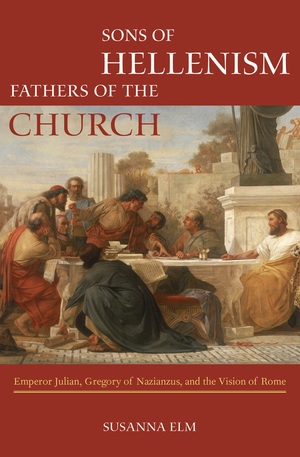March is Women’s History Month, and we at UC Press are proud to share our rich record of publishing stories of women from throughout history, between disciplines, and across borders.
Please enjoy these collections which highlight the work, research, and activism of women authors from throughout our list. From the coral shores of the Caribbean to the front lines of student protests, from medieval reliquary vaults to California’s strawberry fields and beyond, our authors showcase the vibrancy of today’s woman-authored scholarship.
Laughter in Ancient Rome
On Joking, Tickling, and Cracking Up
by Mary Beard
“Like a great piece of archaeology, Laughter in Ancient Rome allows us to glimpse ourselves in the cracked mirror of a distant culture.”
—Washington Post
What made the Romans laugh? Was ancient Rome a carnival, filled with practical jokes and hearty chuckles? Or was it a carefully regulated culture in which the uncontrollable excess of laughter was a force to fear—a world of wit, irony, and knowing smiles? How did Romans make sense of laughter? What role did it play in the world of the law courts, the imperial palace, or the spectacles of the arena?
Laughter in Ancient Rome explores one of the most intriguing, but also trickiest, of historical subjects. Drawing on a wide range of Roman writing—from essays on rhetoric to a surviving Roman joke book—Mary Beard tracks down the giggles, smirks, and guffaws of the ancient Romans themselves. From ancient “monkey business” to the role of a chuckle in a culture of tyranny, she explores Roman humor from the hilarious, to the momentous, to the surprising. But she also reflects on even bigger historical questions. What kind of history of laughter can we possibly tell? Can we ever really “get” the Romans’ jokes?
Other Natures
Environmental Encounters with Ancient Greek Ethnography
by Clara Bosak-Schroeder
“This is a rich and thought-provoking book. Bosak-Schroeder illuminates the recurring concern with relationships between human culture and the environment in ancient ethnographic writing. In the process, she also shows how those ancient texts have inspiring implications for the challenges we face today.”
—Jason König, Professor of Greek, University of St Andrews
Ancient Greek ethnographies—descriptions of other peoples—provide unique resources for understanding ancient environmental thought and assumptions, as well as anxieties, about how humans relate to nature as a whole. In Other Natures, Clara Bosak-Schroeder examines the works of seminal authors such as Herodotus and Diodorus Siculus to persuasively demonstrate how non-Greek communities affected and were in turn deeply affected by their local animals, plants, climate, and landscape. She shows that these authors used ethnographies of non-Greek peoples to explore, question, and challenge how Greeks ate, procreated, nurtured, collaborated, accumulated, and consumed. In recuperating this important strain of ancient thought, Bosak-Schroeder makes it newly relevant to vital questions and ideas being posed in the environmental humanities today, arguing that human life and well-being are inextricable from the life and well-being of the nonhuman world. By turning to such ancient ethnographies, we can uncover important models for confronting environmental crisis.
Sons of Hellenism, Fathers of the Church
Emperor Julian, Gregory of Nazianzus, and the Vision of Rome
by Susanna Elm
“Susanna Elm has produced a work that shakes the classical pillars… Very highly recommended.”
—Marginalia
This groundbreaking study brings into dialogue for the first time the writings of Julian, the last non-Christian Roman Emperor, and his most outspoken critic, Bishop Gregory of Nazianzus, a central figure of Christianity. Susanna Elm compares these two men not to draw out the obvious contrast between the Church and the Emperor’s neo-Paganism, but rather to find their common intellectual and social grounding. Her insightful analysis, supplemented by her magisterial command of sources, demonstrates the ways in which both men were part of the same dialectical whole. Elm recasts both Julian and Gregory as men entirely of their times, showing how the Roman Empire in fact provided Christianity with the ideological and social matrix without which its longevity and dynamism would have been inconceivable.





